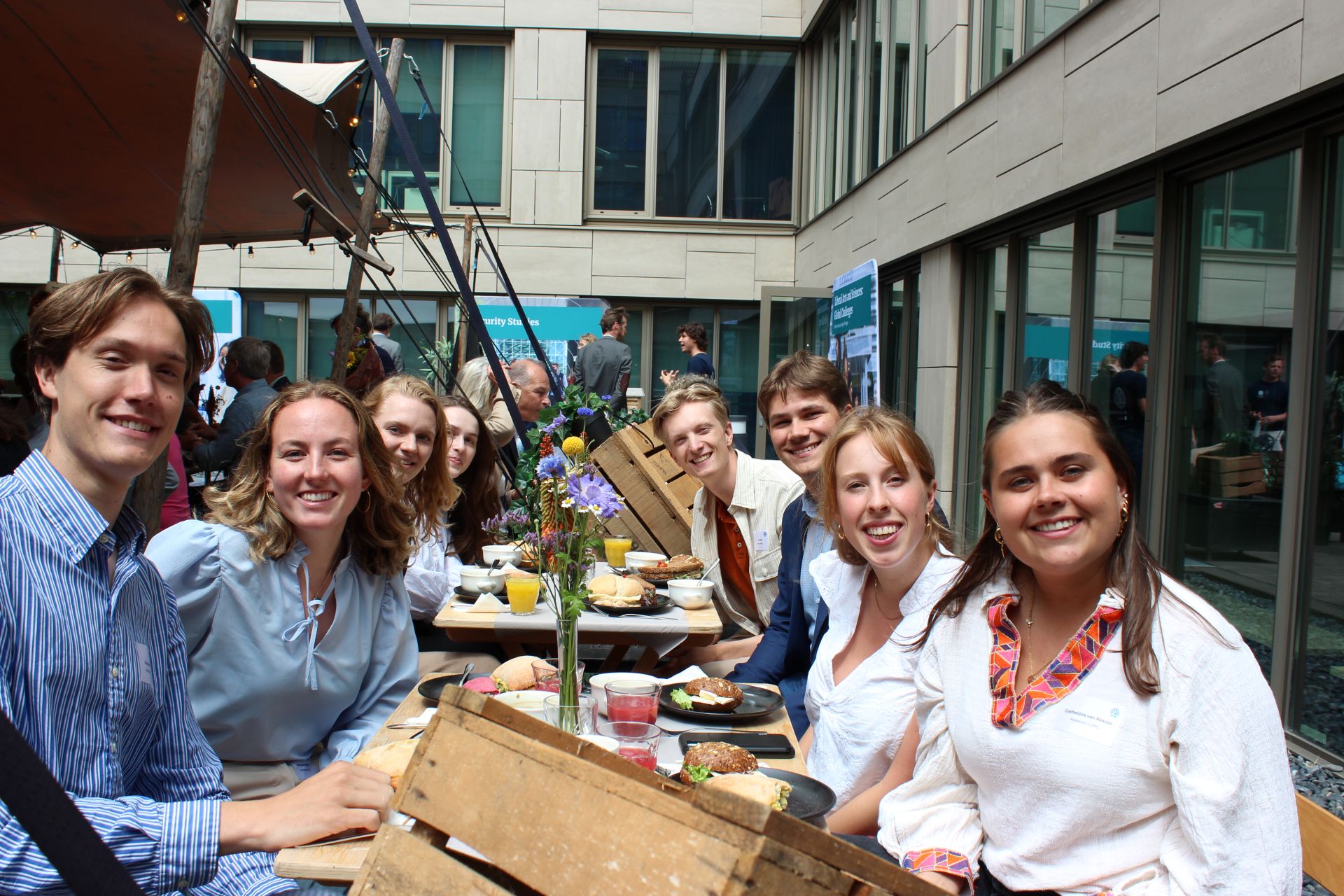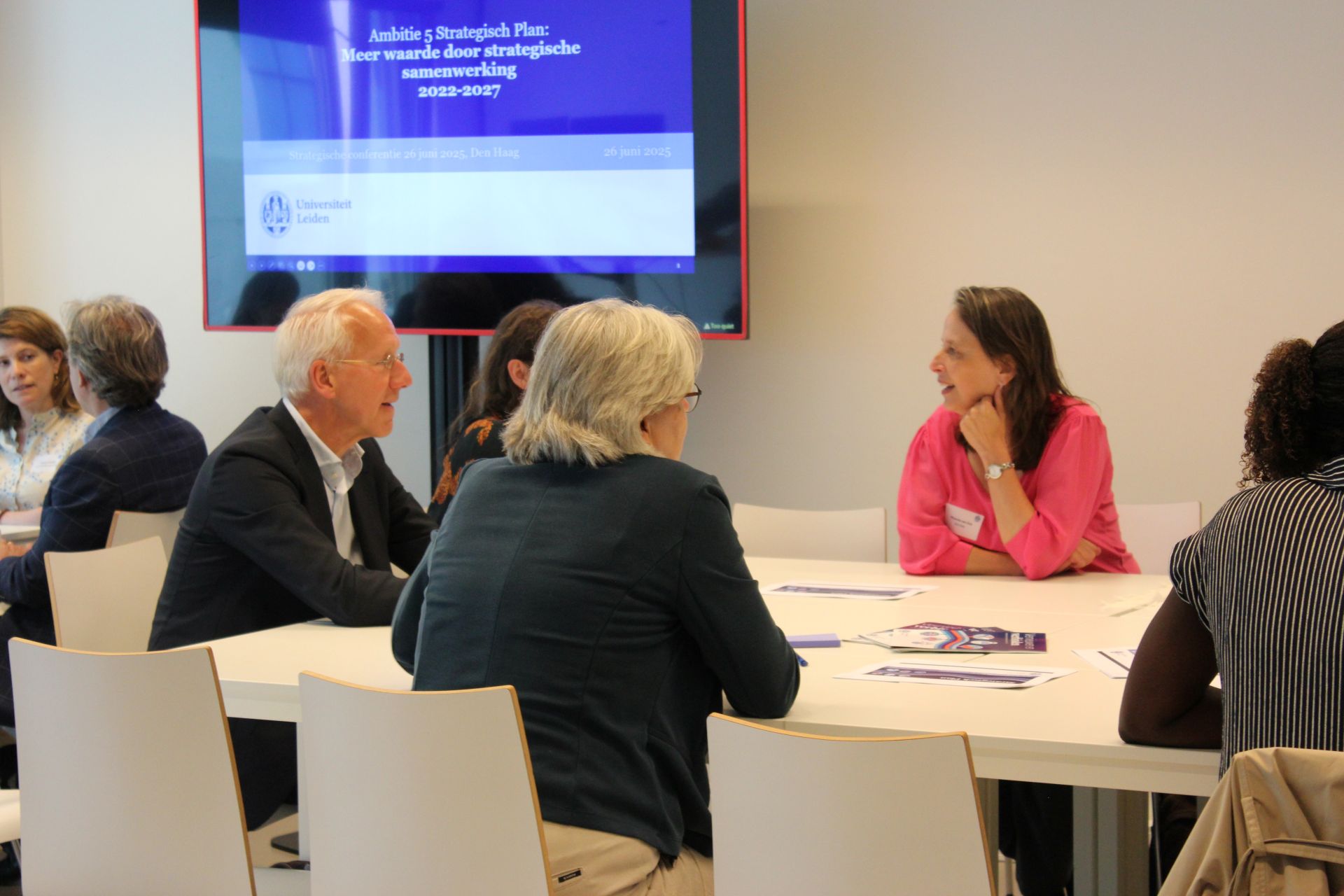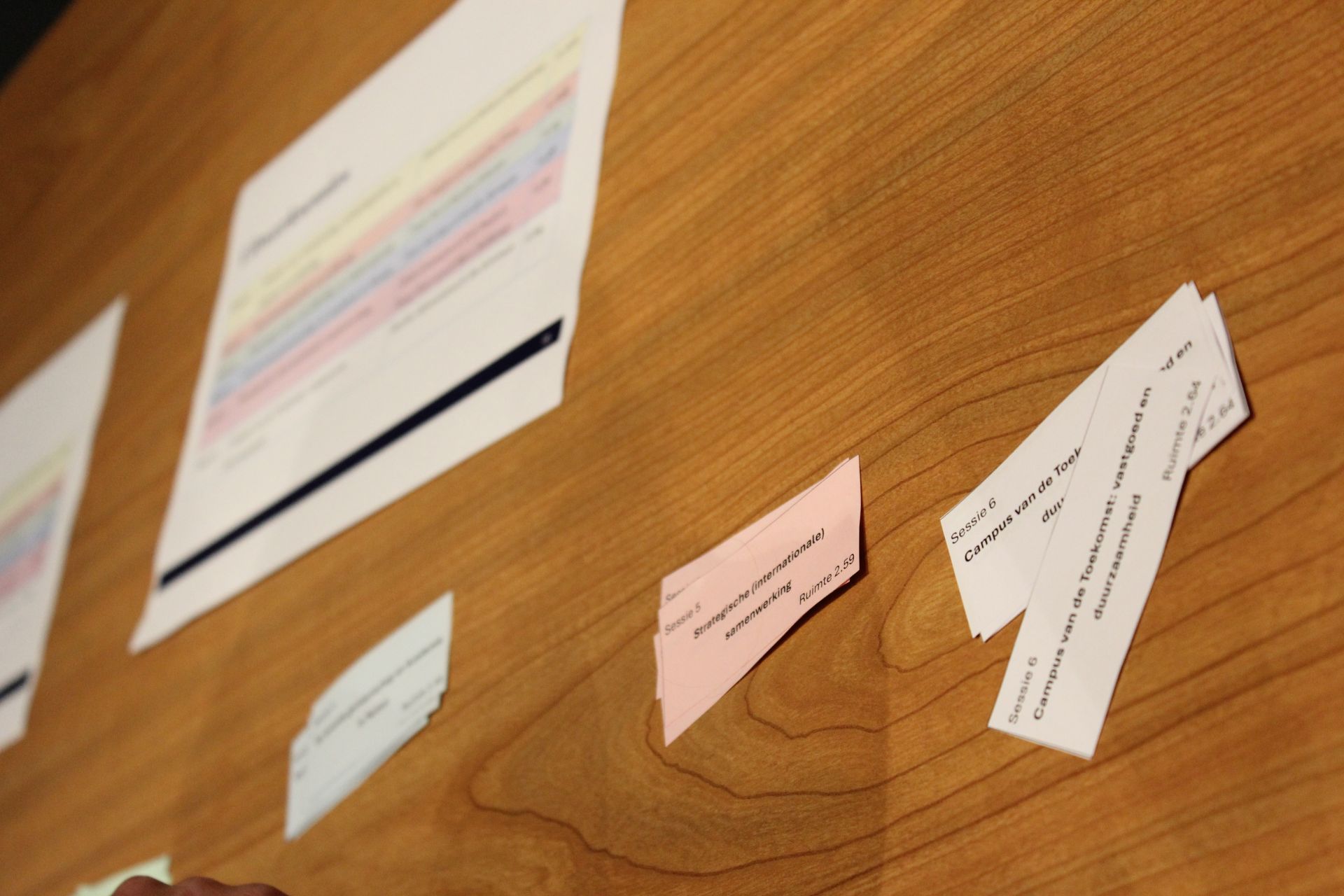
The world is changing. How should we as a university adjust our strategy?
At the halfway mark, how should we adjust our strategy to a rapidly changing world? Faculty administrators, academic directors, directors of expertise centres, staff from Administration and Central Services, members of the representative bodies and students assessors met on 6 June to discuss this question.
The annual strategic conference, held at Wijnhaven, centred on future-oriented thinking. What societal, technological and geopolitical developments are affecting our work as a university? Which ambitions and action lines from the strategic plan remain relevant, which ones need refining and which actions can be discontinued in light of new insights?
Reflecting on a changing world
President of the Executive Board, Annetje Ottow, opened the day with an invitation to critical reflection. ‘We are at the midpoint of our strategic planning timeline and have achieved a great deal. But the world has changed significantly over the past three years, prompting us to take a fresh look at the course we have set. What is our role in society? How can we demonstrate the value we bring? The discussion was based on a recent environmental analysis, with various Leiden researchers providing further insight.
Pivotal moments
Isabelle Duyvesteyn, Professor of International Studies and Global History, guided the audience through pivotal moments in history – from the division of Europe after the Second World War to the 2008 financial crisis – illustrating how these events still affect us today. She emphasised the need to understand a world defined by spheres of influence, where major powers assert their presence across regions. This also impacts the Netherlands and our university, underscoring the need for a strategy that enables us to respond. Duyvesteyn cautioned against strategies that lack clear objectives or funding, and called for more decisive action: we need to be clear about our goals and how we intend to achieve them.
New manifestations, old problems
Pieter Slaman, assistant professor and historian of education and policy, drew parallels with the 1970s, a time when universities were also under pressure . ‘We are essentially dealing with new manifestations of the same problems.’ We should express our diversity of voices, he said. ‘We are sometimes perceived as either “left-wing” or “right-wing” by the outside world, but that’s because we make space for a range of perspectives. That is our strength.’
-

The student assessors also attended the conference. -

-

Labour market developments
Olaf van Vliet, Professor of Economics, spoke about the impact of technological developments on the labour market. He explained how certain professions are disappearing while new ones are emerging, and how the nature of work itself is evolving. He emphasised the important role universities can play in offering flexibility and lifelong learning opportunities. ‘As a university, we can respond to this in a meaningful way’ , he said.
Socially relevant versus fundamental research
The Institute of Public Administration works with a Social Advisory Council to ensure its degree programmes remain aligned with labour market developments. In response to a colleague’s question about whether it is risky to tie degree programmes too closely to societal demands – ‘since we are here for the long term’ – Van Vliet gave the example of the energy transition, a topic currently under discussion with the Social Advisory Council.
‘It is powerful to connect societally relevant issues – such as migration, digitalisation and the energy transition – that we discuss with the Advisory Council, to fundamental scientific research. We remain scholars. Take hydrogen, for example: it’s not just about technical constraints, but also about investment willingness, the availability of skilled professionals and public support. We are working on this topic in a consortium with colleagues from across the university, including from psychology. This allows us to conduct fundamental research into businesses’ willingness to make invest in green technologies – something that doesn’t fit neatly into standard models.’
Too focused on the established order
Political geographer Josse de Voogd (an independent researcher and commentator) spoke about electoral unrest and polarisation. While the university aims to innovate and look to the future, he argued that it can sometimes be too focused on the established order. He questioned whether the university is truly engaged with all segments of society, particularly in relation to pressing issues such as migration, climate change, diversity, globalisation and populism, and their impact on different social groups. ‘Whose university is it? Is it really for everyone?’ said De Voogd. ‘What is its licence to operate?’
Discussing our ambitions
In the afternoon, the participants set to work in groups on the university’s strategic ambitions. Each group reflected on external developments and asked questions such as: Are these ambitions still relevant? What should gain priority? And what could we relinquish? Karin Horsman, Director of Strategy and Academic Affairs, introduced this part of the day. ‘Our strategy contains fantastic ambitions highlights the strengths of Leiden University. But we should continue to reflect together on whether we are still achieving them. Consider our academic freedom, international outlook and open community. How do we continue to nurture these?’
Perverse incentives
Each group worked on an updated version of an ambition, which will be included in an addendum to the strategic plan. The groups made various recommendations, including promoting more efficient and flexible use of space, with a focus on interfaculty collaboration and community building. They also called for the removal of bottlenecks and perverse incentives that hinder interdisciplinary work, and for intensifying strategic collaboration with public and private partners within the local and regional ecosystem, aligned with key strategic themes.
The detailed outcomes of the afternoon will be processed by the relevant departments and organisational units, coordinated by the Directorate of Strategy and Academic Affairs. This will result in a proposal to the Executive Board and deans, which is expected to be discussed in the autumn.
Choosing a new president
Throughout the day, attention was also given to other developments. Ferd Grapperhaus, Chair of the Board of Governors, explained the recruitment procedures a new President of the Executive Board. The university has decided on an open approach, with staff actively invited to nominate suitable candidates.
Interlude
The student assessors gave a humorous yet insightful interlude on student life, portrayed through three stereotypical students: the traditional student, the anonymous student and the diligent student. They highlighted how student well-being requires ongoing, structural attention. ‘Every type of student, no matter how different, hits a rough patch at some point. Student life is a formative phase – there must be space to grow, to fail and to learn.’
Show the world what we’re good at
Rector Hester Bijl was struck once again by the strength of our community. ‘Our organisation is made up of inspiring people who teach, conduct research or work behind the scenes to ensure, for example, that our IT systems run smoothly. And I saw that again today in the people present. Let’s build on that strength!
Vice President of the Executive Board Timo Kos added, ‘We’ve overcome major challenges in the past, though they continue to cause considerable unrest. Our potential, our strength in being rooted in two places, is what makes us unique. We need to clearly show the world what we’re good at and how we stand out from the crowd.’
Background information
Are you interested in the environmental analysis that was shared with the attendees? Or would you like to see the midterm review of the strategic plan? Send an email to sazsecretariaat@bb.leidenuniv.nl.
